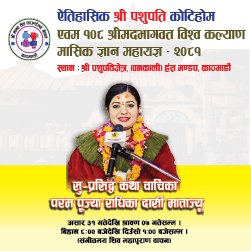Mandatory pass to graze chauri in China's Khark, lapchibasi problem
We use Google Cloud Translation Services. Google requires we provide the following disclaimer relating to use of this service:
This service may contain translations powered by Google. Google disclaims all warranties related to the translations, expressed or implied, including any warranties of accuracy, reliability, and any implied warranties of merchantability, fitness for a particular purpose, and noninfringement.


The grazing area of Chauri in remote Lapchibasi, which is bordered with China, is towards China. It has been 5 years since the residents of Bigu Rural Municipality-1 Lapchi did not use Yak Chaunri as a grazing area. Mainly from winter to rain, the local shepherds of Lapchi chase the yak chauri and take their cattle to the pasture area on the other side.



After China opened the unofficial border last October, the locals sold chaunri bachcha and ghee to obtain food.
On the same basis, when Lapchi residents tried to take yak chaunri for grazing in winter, the Chinese security personnel stopped them at the border . They stopped them because they did not have an official pass to cross the border with them.
When going to the Chinese market from Lapchi, the locals did not use the pass until now. They went to the Chinese market by showing their citizenship. But after the Chinese security personnel asked for a mandatory official pass citing security reasons, the border residents requested the Nepal government to provide the pass.
Earlier, Lapchi residents used to cross the border with the verbal consent of the Chinese side. The main grazing area of the yak chaunri raised by the locals of Lapchi is the area including Ramdung in China .
After the snowfall in the upper part, the Lapchibasi descend to Lumnang after chasing the yak chauri. After the end of winter, the Lapchi residents of Lumnang go to the grazing area of China through Lapchi chasing yak chauri.
China opened the border in October but it was closed again, according to Sherpa, a local furwatharke. "The daily life of the people of Lapchi runs from the Chinese market, we were happy when the border opened," he said. ; 'Last October, the food we made by selling calves and ghee has run out, helicopter transportation costs 9000 bags,' he said. He said that the border has been tightened after the activity. "In the past, we used to go there by mutual agreement, we never used the pass," he said, "but lately, there has been a lot of trouble when the Chinese security personnel refused to let us go without a pass." is . The main market of Lapchibasi is Ramdung in China. There are more than 1 thousand yak chaunri of this family. Lapchibasi's Yak and Chaunri grazing areas are also the sources of China. The border residents used to pay 750 grams of ghee to the Chinese government for using the grazing area for grazing yaks.
Along with the closure of the border, a mandatory pass has also been demanded to take the grazing area to Chounri, said local Wangchuk Sherpa. Yak Chounri He complained that there is financial crisis due to not being able to sell ghee and calves. "The security personnel have set up a camp at the border going to Khark," he said, "to buy food including preparing to sell ghee and calves, they have chased the yak chaunri to go there, and after reaching the border, they have stopped them by looking for a government pass." He said that the burden has been increased. Due to the closure of the border, the flour and salt given to yak chauri have been falling for a long time.
Lapchibasis used to transport salt and flour for yak chaunri in a very expensive shipment. He said that in the name of construction of hydropower project, the Lapchibasi walking path of Lamabagar falls has also been destroyed, so they are forced to walk by hanging on a rope. He said that because there was no road, he had to pay nine thousand per bag to transport rice in a helicopter. "The way to descend Lambagar has been damaged by hydro, we have to risk our lives by hanging on a rope," he said. The border residents are forced to transport and get lapchi. Along with yak and chaurilai, Lapchi should be transported up to 2500 kg per family. Rechen Sherpa, a local, said that while transporting salt worth 30 rupees in Lamabagar, it costs 160 rupees. "There is no electricity or communication in Lapchi, even if the government provided a pass, we used to go to the Chinese market and buy food," he said, "It would have been easy to take yak chauri to graze there, and there would have been no economic crisis." Chief District Officer Tuvraj Pokharel said that he has requested a passport sample from the Ministry of Foreign Affairs. "Because there is no immigration office in Lapchi, we have received a request for sample passports," he said, "we have prepared to distribute official passes to Lapchi residents within a week." He said, "In the past, the citizenship of Lapchi residents was based on citizenship, there was no need for passports. "Since the Chinese side has asked for an official passport, we are going to provide passports to border residents for the first time."
 प्रकाशित : चैत्र १९, २०८० १९:०१
प्रकाशित : चैत्र १९, २०८० १९:०१

 २७.१२°C काठमाडौं
२७.१२°C काठमाडौं
















